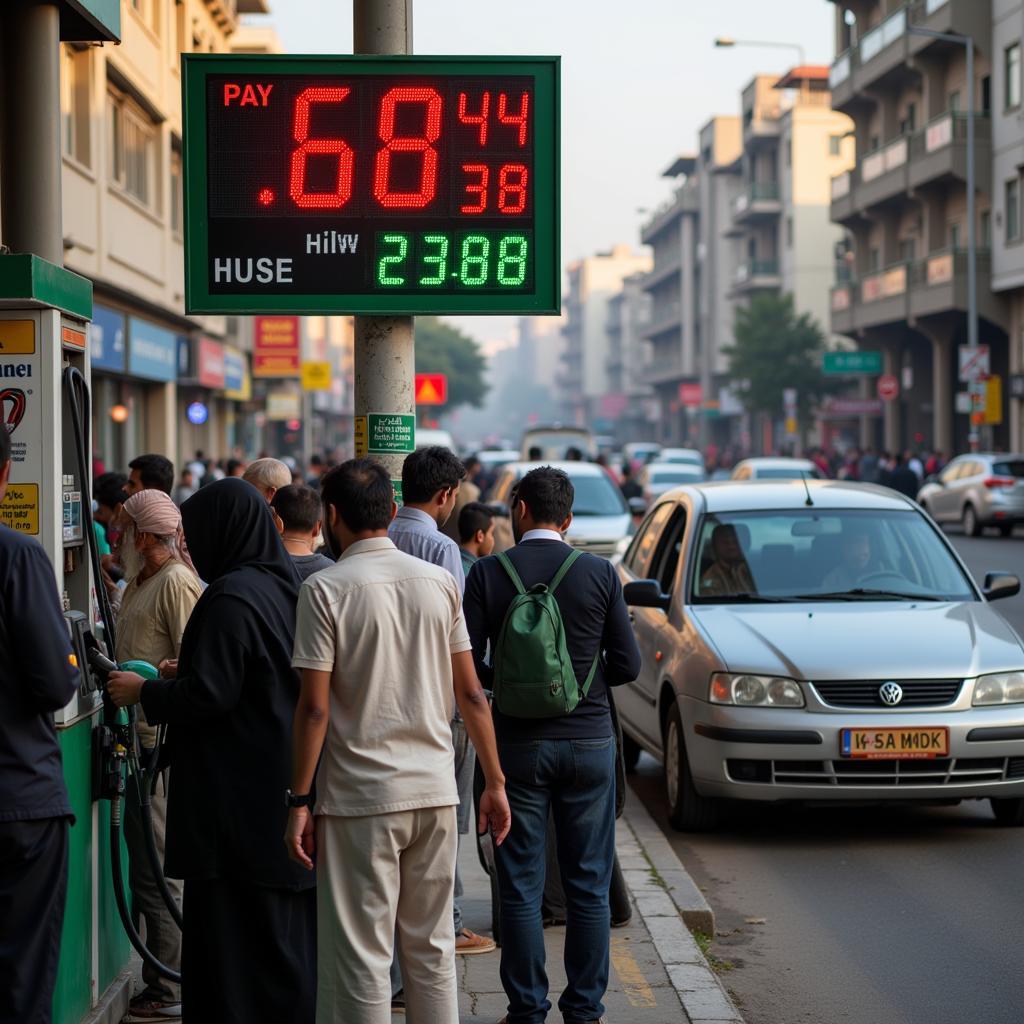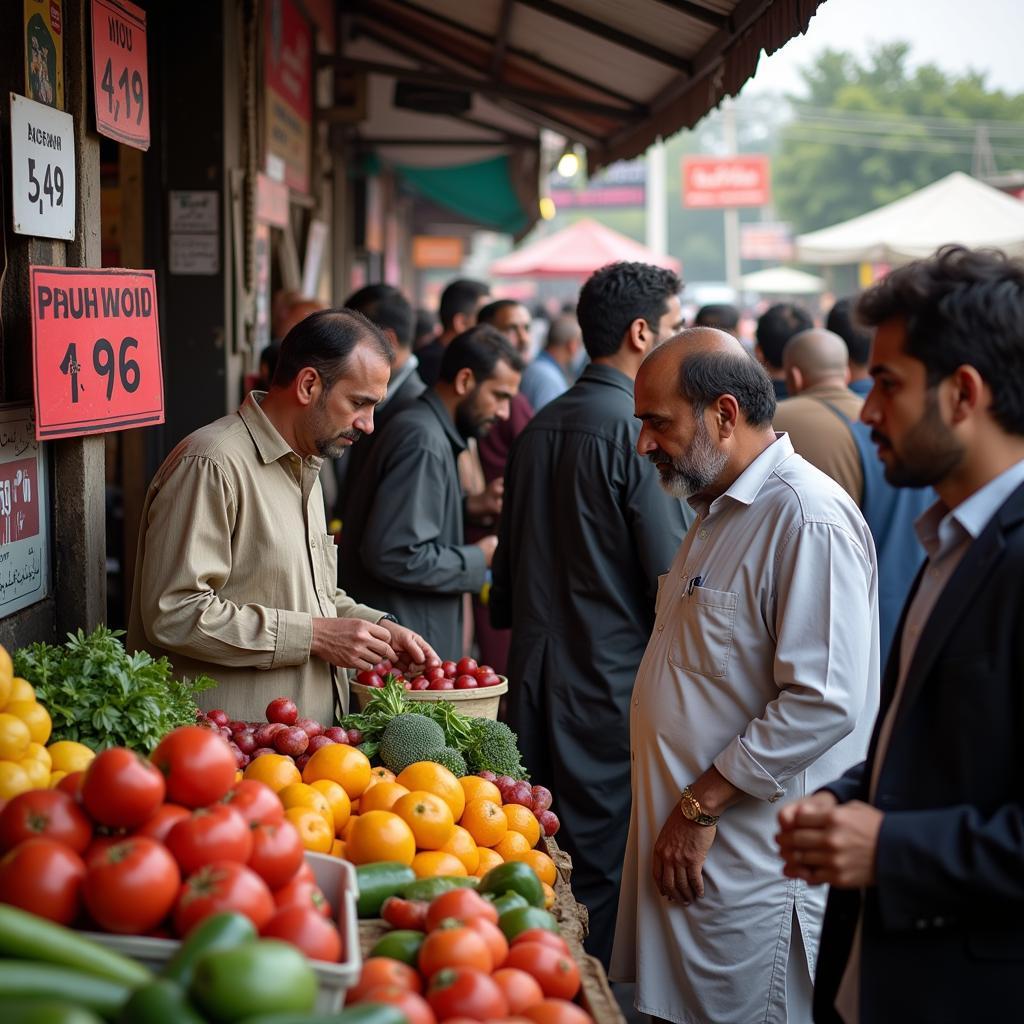Inflation in Pakistan has been a persistent challenge, impacting the economic stability and well-being of its citizens. This essay will delve into the complex interplay of factors driving inflation in Pakistan and explore its wide-ranging consequences. We’ll examine the historical context, current trends, and potential solutions to this pressing issue.
Understanding the Root Causes of Inflation in Pakistan
Several factors contribute to Pakistan’s inflationary pressures. A key driver is the country’s reliance on imported goods, particularly oil. Fluctuations in global oil prices directly impact domestic fuel costs and transportation expenses, rippling through the economy. Supply-side bottlenecks, often caused by infrastructure limitations and agricultural production challenges, further exacerbate the problem. When supply fails to meet demand, prices inevitably rise. Moreover, government borrowing and deficit spending can inject excess money into the economy, leading to demand-pull inflation. Finally, the volatile political landscape and occasional periods of instability can undermine investor confidence, further contributing to inflationary pressures.
essay on inflation in pakistan
The interplay of these factors creates a complex web of challenges for policymakers. Addressing the root causes of inflation requires a multifaceted approach that tackles both supply-side constraints and demand-side pressures.
 Rising Fuel Prices Contributing to Inflation in Pakistan
Rising Fuel Prices Contributing to Inflation in Pakistan
Devastating Effects of Inflation on the Pakistani Economy
The effects of inflation are far-reaching, impacting various sectors of the Pakistani economy and the lives of its citizens. Rising prices erode purchasing power, making it more difficult for households to afford essential goods and services. This can lead to a decline in living standards, particularly for low-income families. Inflation also discourages savings as the value of money diminishes over time. Businesses face increased uncertainty, making investment decisions more challenging. The rising cost of inputs can squeeze profit margins and hinder economic growth. Furthermore, high inflation can destabilize the exchange rate, making imports more expensive and exports less competitive.
 Impact of Inflation on Food Prices in Pakistan
Impact of Inflation on Food Prices in Pakistan
How does Inflation Impact the Common Man?
The common man bears the brunt of inflation. Rising food and fuel prices directly impact household budgets, forcing families to make difficult choices. Essential expenses like healthcare and education become increasingly unaffordable, impacting long-term well-being. Moreover, inflation can exacerbate income inequality, as those with fixed incomes or limited access to resources are disproportionately affected.
“Inflation is a silent thief that steals the value of hard-earned money,” says Dr. Asif Khan, a leading economist at the Lahore School of Economics. “It disproportionately impacts vulnerable populations who are least able to cope with rising prices.”
Mitigating the Impact of Inflation: Strategies for Pakistan
Addressing inflation requires a comprehensive approach involving both short-term and long-term strategies. Fiscal discipline, including responsible government spending and revenue generation, is crucial. Monetary policy, such as adjusting interest rates, can also play a role in controlling inflation. Supply-side reforms, including investments in infrastructure and improvements in agricultural productivity, are essential for addressing structural bottlenecks. Furthermore, promoting exports and attracting foreign investment can help stabilize the exchange rate and reduce inflationary pressures.
essay on inflation in pakistan
“Long-term solutions lie in structural reforms that address the underlying causes of inflation,” adds Ms. Fatima Ali, a financial analyst at a leading investment bank in Karachi. “These reforms may require difficult choices, but they are essential for ensuring sustainable economic growth and stability.”
Conclusion: A Path Towards Economic Stability
Inflation in Pakistan is a complex issue with deep-rooted causes and wide-ranging consequences. While the challenges are significant, addressing them is crucial for ensuring sustainable economic growth and improving the lives of Pakistani citizens. Implementing sound macroeconomic policies, investing in infrastructure, and promoting sustainable development are essential steps towards achieving a stable and prosperous future. This Essay On Causes And Effects Of Inflation In Pakistan highlights the need for a concerted effort from policymakers, businesses, and individuals to tackle this persistent challenge.
FAQs about Inflation in Pakistan
- What is the current inflation rate in Pakistan?
- What are the main causes of inflation in Pakistan?
- How does inflation affect the common man in Pakistan?
- What measures can be taken to control inflation in Pakistan?
- What is the role of the government in controlling inflation?
- How does global economic instability impact inflation in Pakistan?
- What are the long-term solutions to address inflation in Pakistan?
If you need any assistance or have further queries, please contact us at:
Phone: +923337849799
Email: news.pakit@gmail.com
Address: Dera Ghazi Khan Rd, Rakhni, Barkhan, Balochistan, Pakistan.
Our customer service team is available 24/7.